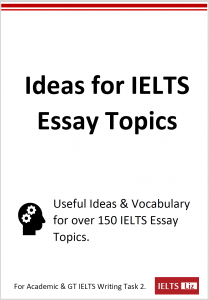Below you can find the answers and transcript to the listening practice lesson about a sponsored walk. If you have not completed this lesson, please do so before looking at the answers. Click here: Listening Practice Lesson
I have posted the audio under the transcript so that you can listen and read together. I also recommend that you use the audio to practise your pronunciation.
Transcript
Army veteran Tom Moore did a sponsored walk at the age of 99 years old to raise money for the NHS (the National Health Service in the UK). His aim was to raise £1,000. This was an ambitious walk of 1.6 miles in his back garden given that he had recently been treated for a broken hip and skin cancer.
As he began his sponsored walk, he was surprised to see the response from the British public as donations started pouring in. By the end of this sponsored walk, he had raised not £1,000 but a staggering £21 million. Many around the country are now calling for Tom Moore to be knighted for his remarkable fund-raising efforts.
Tom Moore has stated that he was “overwhelmed by this sum of money” that was donated. His praise for the NHS struck a chord with many around the country today as the population watch doctors, nurses, other hospital staff and all front-line workers put themselves in harms way to save lives as they battle against the coronavirus crisis. This story truly is an example of how a humble, unambitious person can stir the nation and effect incredible change. Surely we should all be doing more in one way or another. As the saying goes “Every little helps” and who knows whether your modest attempt to help might not also create a flame of support throughout your own country.
Audio
.
Answers
The answers are highlighted in bold below.
- Does Tom serve in the army?
- NO
- How much does he hope to raise?
- £1,000
- You do not need the comma, but it is recommended to use it because it is easier for the person marking.
- Where was his sponsored walk to take place?
- GARDEN
- back garden is two words and not a possible answer.
- Tom eventually raised a …………. £21 million.
- STAGGERING
- Many hope that Tom will be ……….. for his efforts.
- KNIGHTED
- This is a high band score answer and people who are around band score 6 level will probably not get this right.
- to be knighted means to be given a special award by the Queen of a knighthood and from that moment on that person would use the title “Sir” instead of “Mr”.
- Tom’s aims to support the NHS have struck a ……… with many people in the UK.
- CHORD
- This is a high band score answer and people who are under band score 8 probably might not get it right.
- The spelling must be correct or the answer is marked wrong.
- The “h” is a silent letter for pronunciation.
- “to strike a chord” means:
- a) to say or do something that other people agree or approve of.
- b) to say or do something that causes emotions to rise or triggers memories in another person.
- This is idiomatic.
- Tom has shown how a single person can ……….. the nation.
- STIR
- “to stir someone” means to awaken strong feelings.
- Please be careful because there is a phrasal verb which is “to stir someone up” and this means to “awaken bad feelings in someone – to bother them”. Don’t confuse these two idiomatic expressions.
- Every ……. helps.
- LITTLE
- This expression (every little helps) means that even small deeds or small amounts of money will help.
I hope you find this both useful and inspiring 🙂
All the best
Liz
………………………….
Free Subscribe to get New Posts by Email







